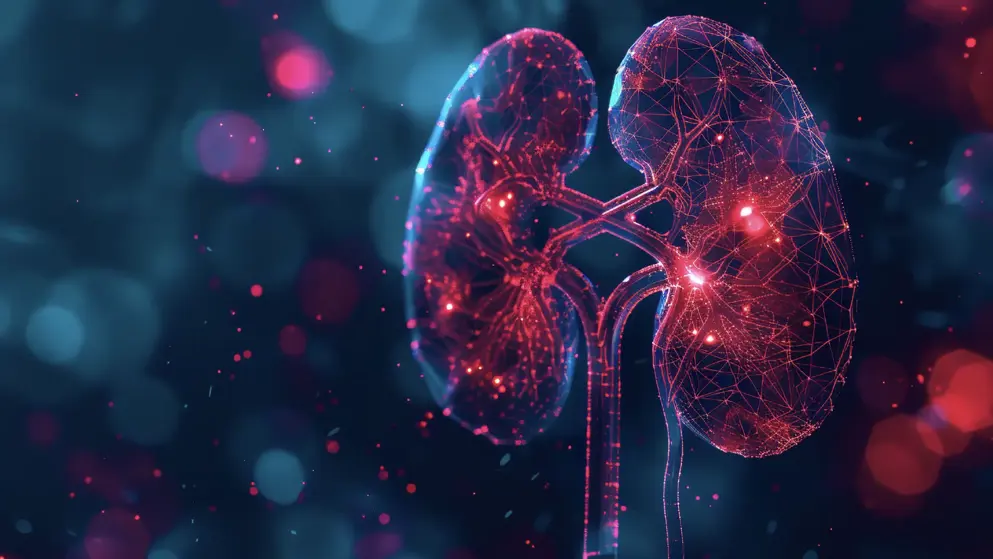
Atrasentan phase III data show clinically meaningful proteinuria reduction further advancing company's IgA nephropathy (IgAN) portfolio .- Novartis.
Novartis presented results from a pre-specified interim analysis of the Phase III ALIGN study of atrasentan, an investigational oral selective endothelin A (ETA) receptor antagonist, in patients with IgA nephropathy (IgAN).
Patients treated with atrasentan, in addition to supportive care (maximally tolerated and stable dose of a renin-angiotensin system [RAS] inhibitor), achieved a 36.1% (p<0.0001) reduction in proteinuria (as measured by 24-hour urine protein to creatinine ratio [upcr]) at 36 weeks when compared to placebo on top of supportive care.>
The results were presented during a late-breaking clinical trials session at the European Renal Association (ERA) Congress1. The study also showed atrasentan has a favorable safety profile consistent with previously reported data1.
Proteinuria reduction is a recognized surrogate marker correlating with delaying progression to kidney failure and has been used as an endpoint in IgAN clinical trials to support accelerated regulatory approvals. FDA submission for atrasentan in IgAN is on track for the first half of 2024.
“For those living with IgAN and their families, the disease can have a significant impact not only physically, but also mentally. When my son Eddie was diagnosed with IgAN 20 years ago, there were no FDA-approved medicines developed to treat IgAN. That was as devastating as the diagnosis itself because we felt completely in the dark about how to manage the condition,” said Bonnie Schneider, Director and Co-Founder, IgAN Foundation. “It’s a disease that affects people differently, and what works for one person may not work for another. We’re pleased to see ongoing research into different treatments and are excited for a future where the community will have options to meet their individual needs."
The ALIGN study continues in a blinded manner, and therefore only limited interim analysis results can be presented. The final analysis, including the key secondary endpoint of change from baseline in estimated glomerular filtration rate (eGFR) at 136 weeks, and the results in participants receiving a sodium-glucose co-transporter-2 (SGLT2) inhibitor as background care in an exploratory cohort, is expected in 2026.
"ETA receptor activation causes proteinuria, which is usually one of the first clinical signs of IgAN. Patients with persistent proteinuria have a poorer prognosis and are more likely to progress to kidney failure,” said Professor Hiddo Heerspink, Professor of Clinical Trials and Personalized Medicine at the Department of Clinical Pharmacy and Pharmacology at the University Medical Center Groningen and ALIGN blinded Steering Committee Chair. “We need targeted treatment options that can support patients with IgAN across the care pathway. These data from the ALIGN study further demonstrate the ability of atrasentan to significantly reduce proteinuria and, if approved, its potential to become a new foundational treatment for people living with IgAN that can be seamlessly added to current supportive therapy.”
At ERA, Novartis is also presenting new data across its rare disease portfolio, including 6-month data for Fabhalta (iptacopan) in C3 glomerulopathy (C3G) from the Phase III APPEAR-C3G study, long-term 33-month efficacy and safety data for Fabhalta in C3G from the Phase II extension study, additional data for Fabhalta in IgAN from the 9-month interim analysis of the Phase III APPLAUSE-IgAN study, 1-year Phase I/II data for investigational zigakibart in IgAN, and data from real-world studies in C3G and atypical hemolytic uremic syndrome (aHUS)
The primary efficacy endpoint of the study is change in proteinuria as measured by 24-hour UPCR from baseline to 36 weeks. Secondary and exploratory objectives include evaluating the change in kidney function from baseline to 136 weeks as measured by eGFR, as well as safety and tolerability.

